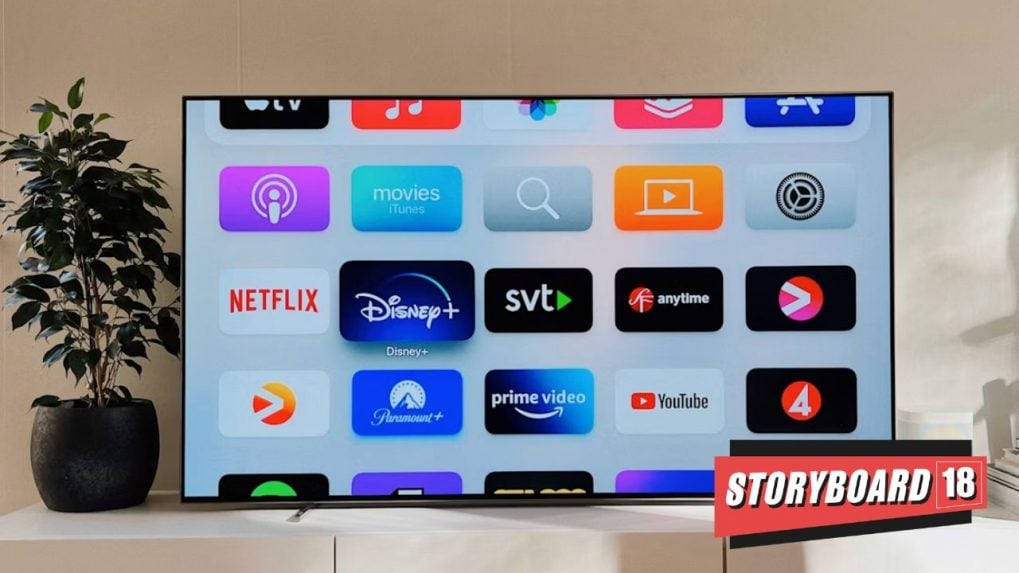Brand Marketing
FMCG firms cut senior roles by 32%; Total headcount shrinks 9.26% in FY25

The proposed National Broadcast Policy has opened up a lot of debates. One key issue is creating a level playing field for OTT(over-the-top) platforms and other stakeholders such as DTH players and broadcasters. Industry leaders are not advocating for stifling regulation of OTT platforms. Instead to ensure fair competition they seek a level playing field with appropriate licensing frameworks and pricing structures for OTT services.
Why does the industry need a level plating field?
“If the same content reaches viewers through multiple platforms, these platforms should be subject to the same taxation and regulation framework. While I won’t specifically advocate for imposing taxes or regulations on OTT, on the same lines as Cable and DTH, a level playing field requires either regulating/taxing both similarly or removing these barriers entirely, regardless of the technology used by the platform” said Harit Nagpal, CEO & MD, Tata Play.
Stakeholders across various sectors are advocating for a level playing field emphasizing the need for equitable regulation and market conditions.
The All India Digital Cable Federation(AIDCF) for instance in its submission to TRAI(Telecom Regulatory Authority of India) highlighted the significant growth of OTT platforms in India, stressing the necessity for regulatory measures to ensure fairness.
“The Authority would be well aware that presently both Free Dish as well as the OTT platforms are unduly advantaged and are not adhering to the regulatory framework as have been notified and enshrined by the Authority, despite them providing the same services as that of the DPOs. This subjects the DPOs to an unequal regulatory regime and hence an urgent intervention is sought from the Authority to firstly recommend establishment of a Licensing Framework for the OTT platforms with appropriate and applicable conditions by virtue of which only such licensed OTT platforms are allowed to remain operational in the country,” said an excerpt from AIDCF’s submission to TRAI.
Focus on growth, not regulation
However, there is also another school of thought that believe the OTT industry is functioning just fine under the present self regulation framework and the focus for this nascent industry in the country should be on growth and content and not overbearing regulations.
Internet and Mobile Association of India(IAMAI) in their inputs to TRAI on the National Broadcast Policy said that the primary concern with these regulations is that they don’t account for the fact that content consumption on OTTs differs primarily from other conventional sources such as broadcasting, which are based on a ‘push’ model.
“Television is a push-based medium, meaning viewers consume content at a prescribed time and schedule as decided by the broadcaster. On the other hand, OTT services are pull-based, with consumers making informed choices about the time and type of content they want to watch from a library of available content in the privacy of their personal devices,” they explained.
And thus due to these fundamental differences between OTT services and broadcasting services they expect that the policy on broadcasting would address only the aspects relating to one-way broadcasting services that are provided over broadcasting networks (DTH, Cable TV, HITS etc.) and not the OTT services provided over the internet.
Content first approach
OTT players believe that self regulation is the way forward.
“We are very particular about the content that goes on our platform and we make sure that it adheres to all the self regulation metrics. This arrangement is working for both our subscribers and for the company. The focus on quality content should be the priority for platforms in order to make the industry stand out and grow,” said Soumya Mukherjee, Chief Operating Officer at hoichoi.
Just like hoichoi, Dish TV also believes in the fact that nurturing the Indian content industry amidst stiff global competition should lead the conversation when it comes to any new regulations or policies.
“The OTT platforms in India are doing very well. Thanks to a lot of original content. It should be recognised as they are in direct competition with the global Giant such as Netflix or Amazon prime,” Dish TV said in their submissions.
They highlighted how Netflix has committed to spend spend $17 billion on content in 2024, up by 35 percent from the prior year and the fact that the entire Indian cinema industry is only about 10 percent of this spending.
“Hence it is very important that the Indian content industry be continued to be given a free environment and all opportunities to earn revenues. These revenues are streaming rights, satellite rights(currently constrained by Tariff regulations), box, office(constrained by censorship and taxation) and content that is threatened by new enactments on regulation of OTT content, oversight committees. There is a need to remove these barriers and not impose new ones such as content oversight committees, else, it will kill The indian content industry,” they added.
Demand for principles-based approach
Culver Max Entertainment Private Limited on the other hand anticipates the initiation of consultations on the Digital India Act(DIA), emphasising a ‘principles-based approach’ and exclusion of OTT platforms from broadcasting regulations.
“The MIB (Ministry of Information and Broadcasting) should let the MeitY (Ministry of Electronics and Information Technology) and Indian Parliament take the first step in setting the ‘principles and rule based’ approach through the DIA, a light touch governing framework which is expected for the composite digital landscape for governing the OTT platform. Further discussions regarding the Broadcasting Services(Regulations) bill must be settled to evade any potential overlaps prior to the MIB/TRAI indulging in any further consultation/initiating any further action with regard to the policy,” they said in their submission.
For Puneet Chandok, leadership is as much about the inner journey as it is about external results.
Read MorePerplexity is an $18 billion AI-powered answer engine delivering cited, conversational results, backed by top investors and making bold moves like bidding for Google Chrome.